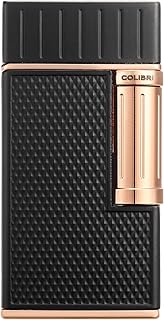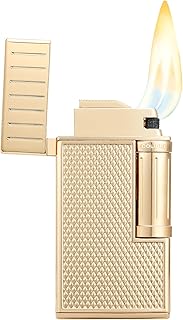* Fuel: Colibri lighters typically use butane fuel, a fossil fuel that contributes to greenhouse gas emissions and air pollution.
* Disposable Nature: Many Colibri lighters are disposable, meaning they are designed to be thrown away after use. This adds to landfill waste and contributes to environmental pollution.
* Materials: The lighters themselves are often made from plastics and metals, which require energy-intensive processes to manufacture.
More Sustainable Options:
If you're looking for a more eco-friendly alternative, consider these:
* Refillable lighters: Look for lighters that can be refilled with butane, reducing the need for disposable lighters.
* Electric lighters: These are powered by batteries and eliminate the need for fuel entirely.
* Windproof lighters: These are often more efficient and use less fuel than traditional lighters.
* Matches: While not as convenient, matches are a sustainable option that generates very little waste.
Tips for Reducing Impact:
* Recycle: If you use a disposable lighter, try to recycle it if possible.
* Avoid using lighters unnecessarily: Consider alternative methods like fire starters or candles when possible.
Ultimately, choosing a more sustainable option will have a greater environmental impact than continuing to use traditional disposable lighters.


